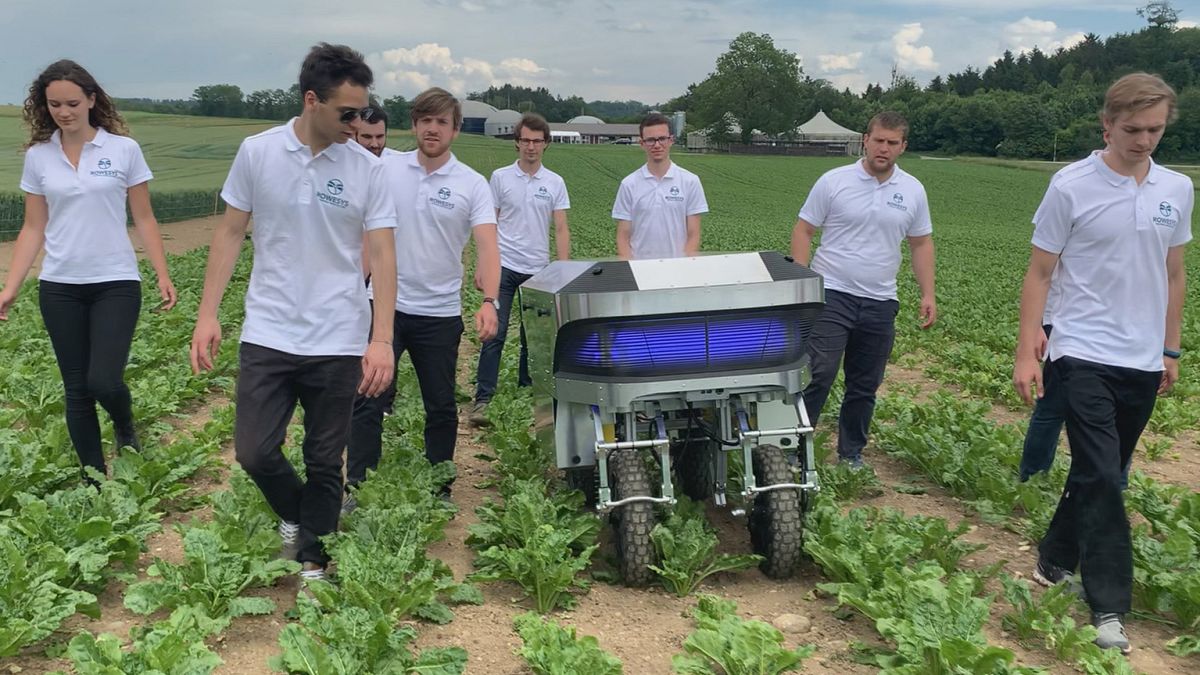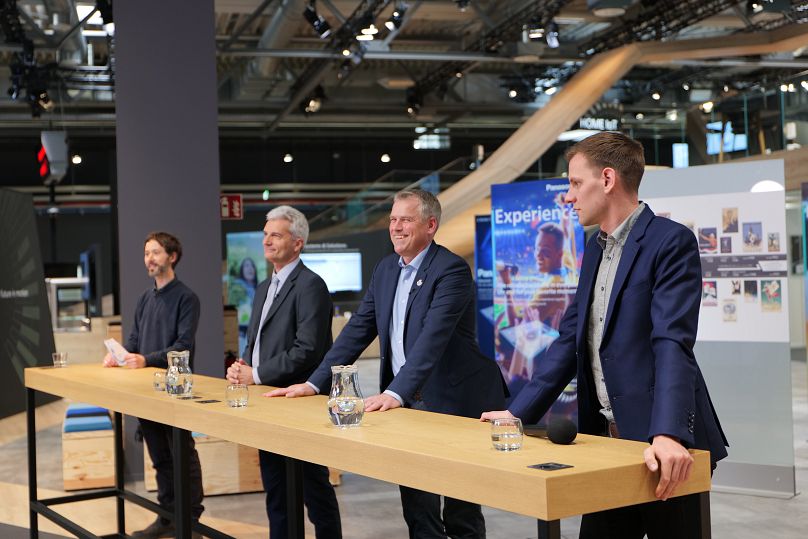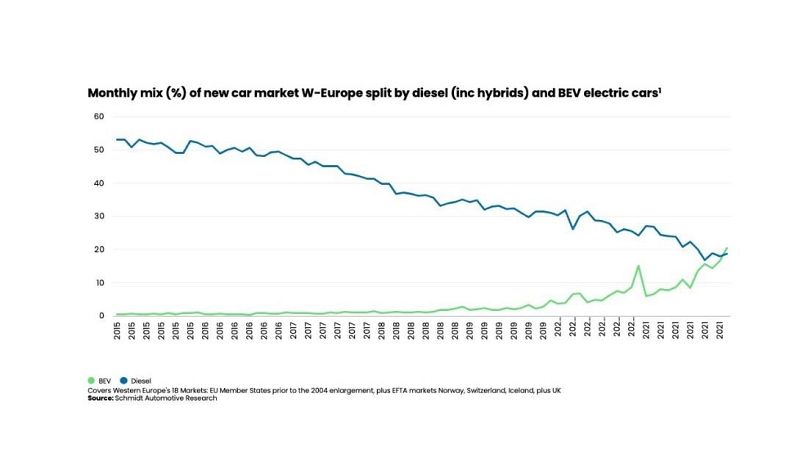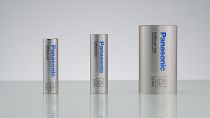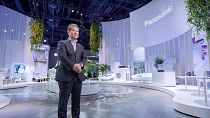For Panasonic, achieving carbon neutrality stretches far beyond its own offices, employees and day-to-day operations. The company’s environmental vision and initiatives, known as Panasonic GREEN IMPACT impacts suppliers, supply chains and most importantly, more than one billion people who use Panasonic products every day.
Panasonic GREEN IMPACT
By designing more energy-efficient products that do not require as much electricity to power, Panasonic says it can significantly reduce the amount of emissions customers omit when using their products. Reducing overall energy consumption will help make homes, towns, mobility and supply chains more sustainable and is an integral part of the company’s long-term environmental goals.
Continuous improvement and innovation in product design began some time ago for the company. In 1997 - well before global warming was an urgent environmental issue - Panasonic launched an ambitious joint venture with Toyota to design and manufacture rechargeable batteries for plug-in hybrid vehicles. Since then, it has built a formidable reputation as a partner to car makers all over the world, supplying integral battery components and electronics for electric vehicles (EVs) and hybrids.
But Panasonic GREEN IMPACT initiatives go beyond EVs to encompass consumer products in housing, appliances, connected devices and even solutions for adjacent B2B industries. The race to achieve climate-neutrality across all operations is well underway company leaders said during a recent industry event, Panasonic – Driving Net-Zero.
Corporate transformation: First steps towards a greener office
Johannes Spatz, President of Panasonic Industry Europe explained Panasonic GREEN IMPACT initiatives in the context of its European operations. The President, who oversaw a review of the region’s offices and subsidiaries, said CO2 emissions are declining as a result of new green solutions such as LED lighting, photovoltaic systems and electric vehicle fleets. Energy monitoring systems have also been installed in some buildings to measure the power consumption of heating, air conditioners and lighting.
“We started to calculate the CO2 footprint on a yearly basis and analysed Panasonic’s energy consumption in several European locations. We then embarked on significant energy consumption reduction and energy management activities based on our analysis. Continuous measurement allows us to see what impact we are having and that’s really encouraging,” Mr Spatz said.
Panasonic’s carbon analysis also showed that the majority of carbon emissions were indirectly emitted from the transportation and distribution of its products, as well as from the electricity used to power those products after purchase. As such, continuous improvement and innovation in product design is critical to achieving Panasonic’s GREEN IMPACT plans over the coming decades.
“The amount of carbon dioxide emitted indirectly through use of our products by customers is approximately 86 million tons – which makes up the majority of our total emissions. So, we must take a holistic approach to reducing emissions - there is no corporate transformation without product innovation,” Mr Spatz said.
Product innovation: Leading in components for EVs
Product innovations, favourable government incentives and the rising cost of diesel is leading to more demand for EV vehicles in Europe. Markus Lienkamp, Research Director at The Technical University of Munich said electric new car volumes surpassed diesel car volumes across Western Europe for the first month ever during December 2021. He predicates that as battery prices come down, “we'll just see all new vehicles as battery electric vehicles (BEV)”.
These trends are good news for a company that has been supplying the mobility market for over four decades. Today, Panasonic is a key supplier of critical components and electronics including EV relays, in-vehicle inductors and film capacitors - an automotive component that modifies the voltage between the battery system and the motor. These technical innovations ultimately help to create new, more sustainable mobility solutions for society.
Collaborative innovation: Supporting adjacent industries
Panasonic's technical innovations have wide-ranging applications in adjacent industries too, such as smart farming.
A young team of students at public research university, ETH Zurich have developed a solution to manage weed control and promote sustainable farming. The start-up, Rowesys, has built a battery-powered robot fit with cameras and sensors which can autonomously monitor crops, identify and remove weeds. Panasonic Industry is supporting the team with its portfolio of high-precision sensors and engineering knowledge.
“Our goal is to have the robot completely autonomous so that it can drive through the field and make decisions for the farmer. Less input means less chemicals and less human hours,“ said Pascal Lieberherr, Project Manager at Rowesys.
The autonomous robot reduces the reliance on agricultural chemicals, such as herbicides which damage crops, soil quality and the broader environment. With accurate results and long-lasting batteries, Rowesys hopes the autonomous robot could work the fields 24 hours per day, further reducing the burden on ageing farmers.
As industries face more pressure to become cleaner, Panasonic’s energy efficient solutions and product innovations continue to play an important role for many organisations and sectors in the transition to net zero. The company’s GREEN IMPACT mission to cut emissions and contribute to a sustainable future for everyone, has only just begun.
To watch the full panel discussion at the Panasonic – Driving Net-Zero event, click here.
About Panasonic
Panasonic Corporation is a global leader developing innovative technologies and solutions for wide-ranging applications in the consumer electronics, housing, automotive, and B2B sectors.
The company, which celebrated its 100th anniversary in 2018, operates 522 subsidiaries and 69 associated companies worldwide and reported consolidated net sales of Euro 54.02 billion (6,698.8 billion yen) for the year ended March 31, 2021.
Committed to pursuing new value through collaborative innovation, the company uses its technologies to create a better life and a better world for customers. Learn more about Panasonic: https://www.panasonic.com/global.
By Annabel Murphy
